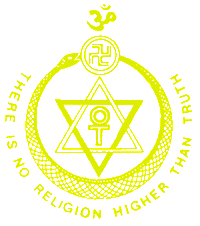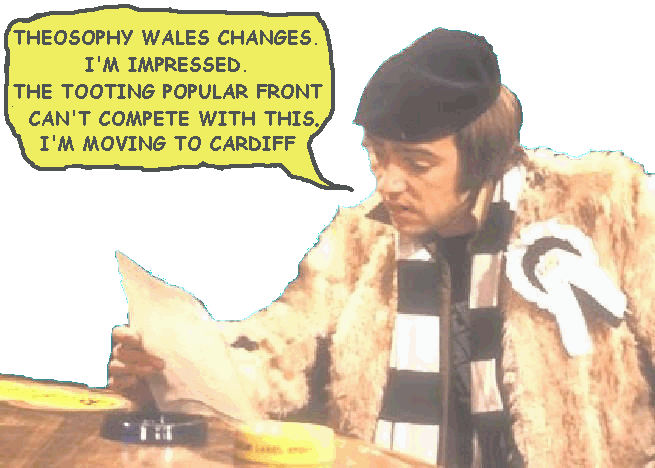HORNET
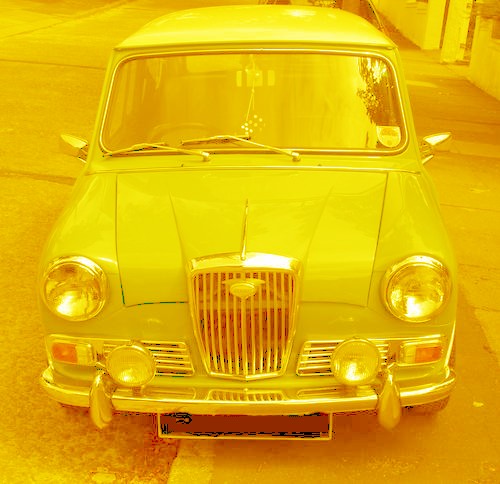
The
Wolseley Hornet 1960s model
An
upmarket version of the Mini
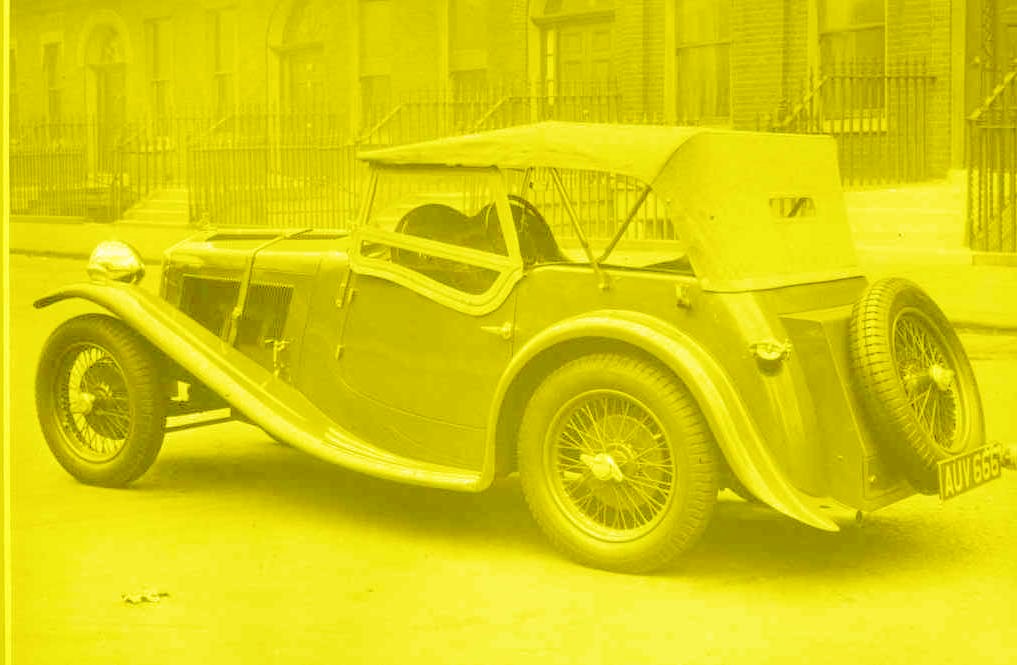
A
1930s Wolseley Hornet sports car
The
bodywork for these was made to order by a coachbuilder
of
the customer’s choice and there were many variations of this car.
The
series ran from 1930 to 1935
The Wolseley Hornet both in its 1930s sports
car
incarnation, and its 1960s posh mini version,
has
very little (in fact nothing) to do with
Theosophy
but we have found that Theosophists and new
enquirers do like pictures of classic cars
and we get a lot of positive feedback.
You can find Theosophy Wales groups
in
Bangor, Cardiff, Conwy & Swansea
Theosophy Wales has no controlling
body
and is made up of independent groups
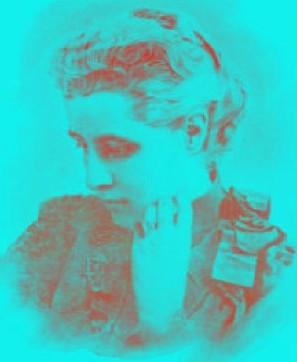
________________________
The
Ancient Wisdom
by
Annie
Besant
Reincarnation
We are now in
a position to study one of the pivotal doctrines of the Ancient Wisdom, the
doctrine of reincarnation. Our view of it will be clearer and more in congruity
with natural order, if we look at it as universal in principle, and then
consider the special case of the reincarnation of the human soul.
In studying
it, this special case is generally wrenched from its place in natural order,
and is considered as a dislocated fragment, greatly to its detriment. For all
evolution consists of an evolving life, passing from form to form as it
evolves, and storing up in itself the experiences gained through the forms ;
the reincarnation of the human soul is not the introduction of a new principle
into evolution, but the adaptation of the universal principle to meet the
conditions rendered necessary by the individualisation of the continuously
evolving life.
Mr. Lafcadio
Hearn ( "Mr. Hearn has lost his way in expressing – but not, I think, in
his inner view – in part of his exposition of the Buddhist statement of this
doctrine, and his use of the word "Ego" will mislead the reader of
his very interesting chapter on this subject, if the distinction between real
and illusory ego is not readily kept in mind.") has put this point well in
considering the bearing of the idea of the pre-existence on the scientific
thought of the West. He says: -
"With
the acceptance of the doctrine of evolution, old forms of thought crumbled ;
new ideas everywhere arose to take the place of worn-out dogmas ; and we now
have the spectacle of a general intellectual movement in directions strangely
parallel with Oriental philosophy. The unprecedented rapidity and multiformity
of scientific progress during the last fifty years could not have failed to
provoke an equally unprecedented intellectual quickening among the
non-scientific. "
"That
the highest and most complex organisms have been developed from the lowest and
simplest ; that a single physical basis of life is the substance of the whole
living world ; that no line of separation can be drawn between the animal and
vegetable ; that the difference between life and non-life is only a difference
of degree, not of kind ; that matter is not less incomprehensible than mind,
while both are but varying manifestations of one and the same unknown reality –
these have already become the commonplaces of the new philosophy."
"After
the first recognition even by theology of physical evolution, it was easy to
predict that the recognition of psychical evolution could not be indefinitely
delayed ; for the barrier erected by old dogma to keep men from looking
backward had been broken down. And today for the student of scientific
psychology the idea of pre-existence passes out of the realm of theory into the
realm of fact, proving the Buddhist explanation of the universal mystery quite
as plausible as any other."
"None
but very hasty thinkers,’ wrote the late Professor Huxley, ‘will reject it on
the ground of inherent absurdity. Like the doctrine of evolution itself, that
of transmigration has its roots in the world of reality ; and it may claim such
support as the great argument from analogy is capable of supplying."
(Evolution and Ethics, p. 61, ed. 1894 – Kokoro, Hints and Echoes of Japanese
Inner Life, by Lafcadio Hearn, pp. 237-39 london, 1896)."
Let us
consider the Monad of form, Âtma-Buddhi. In this Monad, the outbreathed life of
the LOGOS, lie hidden all the divine powers, but, as we have seen, they are
latent, not manifest and functioning. They are to be gradually aroused by
external impacts, it being of the very nature of life to vibrate in answer to
vibrations that play upon it.
As all
possibilities of vibrations exist in the Monad, any vibration touching it will
arouse its corresponding vibratory powers, and in this way one force after
another will pass from the latent to the active state. (From the static to the
kinetic condition, the physicist would say.) Herein lies the secret of
evolution ; the environment acts on the form of the living creature – and all
things, be it remembered, live – and this action, transmitted through the
enveloping form to the life, the Monad, within it, arouses responsive
vibrations which thrill outwards from the Monad through the form, throwing its
particles, in turn, into vibrations, and rearranging them into a shape
corresponding, or adapted, to the initial impact.
This is the
action and reaction between the environment and the organism, which have been
recognised by all biologists, and which are considered by some as giving a
sufficient mechanical explanation of evolution. Their patient and careful
observation of these actions and reactions yields, however, no explanation why
the organism should thus react to stimuli, and the Ancient Wisdom is needed to
unveil the secret of evolution, by pointing to the Self in the heart of all
forms, the hidden mainspring of all the movements of nature.
Having
grasped this fundamental idea of a life containing the possibility of
responding to every vibration that can reach it from the external universe, the
actual response being gradually drawn forth by the play upon it of external
forces, the next fundamental idea to be grasped is that of the continuity of
life and forms.
Forms
transmit their peculiarities to other forms that proceed from them, these other
forms being part of their own substance, separated off to lead an independent
existence. By fission, by budding, by extrusion of germs, by development of the
offspring within the maternal womb, a physical continuity is preserved, every
new form being derived from a preceding form and reproducing its
characteristics. ( The student might wisely familiarise himself with the
researches of Weissman on the continuity of germ-plasm.)
Science
groups these facts under the name of the law of heredity, and its observations
on the transmission of form are worthy of attention, and are illuminative of
the workings of Nature in the phenomenal world. But it must be remembered that
it applies only to the building of the physical body, into which enter the
materials provided by the parents.
Her more
hidden workings, those workings of life without which form could not be, have
received no attention, not being susceptible of physical observation, and this
gap can only be filled by the teachings of the Ancient Wisdom, given by Those
who of old used superphysical powers of observation, and verifiable gradually
by every pupil who studies patiently in Their schools.
There is
continuity of life as well as continuity of form, and it is the continuing life
– with ever more and more of its latent energies rendered active by the stimuli
received through successive forms – which resumes into itself the
experiences
obtained by its incasings in form ; for when the form perishes, the life has
the record of those experiences in the increased energies aroused by them, and
is ready to pour itself into the new forms derived from the old, carrying with
it this accumulated store.
While it was
in the previous form, it played through it, adapting it to express each newly
awakened energy; the form hands on these adaptations, inwrought into its substance,
to the separated part of itself that we speak of as its offspring, which,
beings of its substance, must needs have the peculiarities of that substance;
the life pours itself into that offspring with all its awakened powers, and
moulds it yet further ; and so on and on.
Modern
science is proving more and more clearly that heredity plays an ever-decreasing
part in the evolution of the higher creatures, that mental and moral qualities
are not transmitted from parents to offspring, and that the higher qualities
the more patent is this fact ‘ the child of the genius is oft-times a dolt;
commonplace parents give birth to a genius.
A continuing
substratum there must be, in which mental and moral qualities inhere, in order
that they may increase, else would Nature, in this most important department of
her work, show erratic uncaused production instead of orderly continuity. On
this science is dumb, but the Ancient Wisdom teaches that this continuing
substratum is the Monad, which is the receptacle of all results, the storehouse
in which all experiences are garnered as increasingly active powers.
These two
principles firmly grasped – of the Monad with potentialities becoming powers,
and of the continuity of the life form – we can proceed to the continuity of
life and form – we can proceed to study their working out in detail, and we
shall find that they solve many of the perplexing problems of modern science,
as well as the yet more heart-searching problems confronted by the
philanthropist and the sage.
Let us start
by considering the monad as it is first subjected to the impacts from the
formless levels of the mental plane, the very beginning of the evolution of
form. Its first faint responsive thrillings draw round it some of the matter of
that plane, and we have the gradual evolution of the first elemental kingdom,
already mentioned. (See chapter IV, on "The Mental Plane").
The great
fundamental types of the Monad are seven in number, sometimes imaged as like
the seven colours of the solar spectrum, derived from the three primary.
("As above, so below." We instinctively remember the three LOGOI and
the seven primeval Sons of the Fire ; in Christian Symbolism, the Trinity and
the "Seven Spirits that are before the throne" ; or in Zoroastrian,
Ahuramazda and the seven Ameshaspentas.)
Each of these
types has its own colouring of characteristics, and this colouring persists
throughout the aeonian cycle of its evolution, affecting all the series of
living things that are animated by it. Now begins the process of subdivision in
each of these types, that will be carried on, subdividing and ever subdividing,
until the individual is reached.
The currents
set up by the commencing outward-going energies of the Monad – to follow one
line of evolution will suffice ; the other six are like unto it in principle –
have but brief form-life, yet whatever experience can be gained through them is
represented by an increasedly responsive life in the Monad who is their source
and cause ; as this responsive life consists of vibrations that are often
incongruous with each other, a tendency towards separation is set up within the
Monad, the harmoniously vibrating forces grouping themselves together for, as
it were, concerted action, until various sub-Monads, if the epithet may for a
moment be allowed, are formed, alike in their main characteristics, but
differing in details, like shades of the same colour.
These become,
by impacts from the lower levels of the mental plane, the Monads of the second
elemental kingdom, belonging to the form region of that plane, and the process
continues, the Monad ever adding to its power to respond, each Monad being the
inspiring life of countless forms, through which it receives vibrations, and,
as the forms disintegrate, constantly vivifying new forms ; the process of
subdivision also continues from the cause already described.
Each Monad
thus continually incarnates itself in forms, and garners within itself as
awakened powers all the results obtained through the forms it animates. We may
well regard these Monads as the souls of groups of forms; and as evolution
proceeds, these forms show more and more attributes, the attributes being the
powers of the monadic group-soul manifested through the forms in which it is
incarnated.
The innumerable
sub-Monads of this second elemental kingdom presently reach a stage of
evolution at which they begin to respond to the vibrations of astral matter,
and they begin to act on the astral plane, becoming the Monads of the third
elemental kingdom, and repeating in this grosser world all the processes
already accomplished on the mental plane.
They become
more and more numerous as monadic group-souls, showing more and more diversity
in detail, the number of forms animated by each becoming less as the specialised
characteristics become more and more marked.
Meanwhile, it
may be said in passing, the ever-flowing stream of life from the LOGOS supplies
new Monads of form on the higher levels, so that the evolution proceeds
continuously, and as the more-evolved Monads incarnate in the lower worlds
their place is taken by the newly emerged Monads in the higher.
By this
ever-repeated process of the reincarnation of the Monads, or Monadic
group-soul, in the astral world, their evolution proceeds, until they are ready
to respond to the impacts upon them from physical matter. When we remember that
the ultimate atoms of each plane have their sphere-walls composed of the
coarsest matter of the plane immediately above it, it is easy to see how the
Monads become responsive to impacts from one plane after another.
When, in the
first elemental kingdom, the Monad had become accustomed to thrill responsively
to the impacts of matter of that plane, it would soon begin to answer to
vibrations received through the coarsest forms of that matter from the matter
of the plane next below. So, in its coatings of matter that were the
forms
composed of the coarsest materials of the material plane, it would become susceptible
to vibrations of astral atomic matter ; and, when incarnated in forms of the
coarsest astral matter, it would similarly become responsive to atomic physical
ether, the sphere-walls of which are constituted of the grossest astral
materials.
Thus the
Monad may be regarded as reaching the physical plane ; and there it begins, or,
more accurately, all these monadic group-souls begin, to incarnate themselves
in filmy physical forms, the etheric doubles of the future dense minerals of
the physical world. Into these filmy forms the nature-spirits build
the denser
physical materials, and thus minerals of all kinds are formed, the most rigid
vehicles in which the evolving life in-closes itself, and through which the
least of its powers can express themselves. Each monadic group-soul has its own
mineral expressions, the mineral forms in which it is incarnated,
and the
specialisation has now reached a high degree. These Monadic group-souls are
sometimes called in their totality the mineral Monad or the Monad incarnating
in the mineral kingdom.
From this
time forward the awakened energies of the Monad play a less passive part in
evolution. They begin to seek expression actively to some extent when once
aroused into functioning, and to exercise a distinctly moulding influence
over the
forms in which they are imprisoned. As they become too active for their mineral
embodiment, the beginnings of the more plastic forms of the vegetable kingdom
manifest themselves, the nature-spirits aiding this evolution throughout the
physical kingdoms. In the mineral kingdom there had already been shown a
tendency towards the definite organisation of form, the laying down of certain
lines ( The axes of growth which determine form. They appear definitely in
crystals ) along which the growth proceeded. This tendency governs henceforth
all the building of forms, and is the cause of the exquisite symmetry of
natural
objects, with
which every observer is familiar.
The monadic
group-souls in the vegetable kingdom undergo division and subdivision with
increasing rapidity, in consequence of the still greater variety of impacts to
which they are subjected, the evolution of families, generations, and species
being due to this invisible subdivision.
When any
genus, with its generic monadic group-soul, is subjected to very varying
conditions, i.e., when the forms connected with it receive very different
impacts, a fresh tendency to subdivide is set up in the Monad, and various
species are evolved, each having its own specific group-soul.
When Nature
is left to her own working the process is slow, although the nature-spirits do
much towards the differentiation of species ; but when man has been evolved,
and when he begins his artificial systems of cultivation, encouraging the play
of one set of forces, warding off another, then this differentiation can be
brought about with considerable rapidity, and specific
differences
are readily evolved. So long as actual division has not taken place in the
monadic group-soul, the subjection of the forms to similar influences may again
eradicate the separative tendency, but when that division is completed the new
species are definitely and firmly established , and are ready to send out
offshoots of
their own.
In some of
the longer-lived members of the vegetable kingdom the element of personality
begins to manifest itself, the stability of the organism rendering possible
this foreshadowing of individuality. With a tree, living for scores of years,
the recurrence of similar conditions causing similar impacts, the seasons ever
returning year after year, the consecutive motions caused by them, the rising
of the sap, the putting forth of leaves, the touches of the wind, of the
sunbeams, of the rain – all these outer influences with their rhythmical progression
– set up responsive thrillings in the monadic group-soul, and, as
the sequence
impresses itself by continual repetition, the recurrence of one leads to the
dim expectation of its oft-repeated successor. Nature evolves no quality
suddenly, and these are the first faint adumbrations of what will later be
memory and anticipation.
In the
vegetable kingdom also appear the foreshadowings of sensation, evolving in its
higher members to what the Western psychologist would term "massive"
sensations of pleasure and discomfort. (The "massive" sensation is
one that pervades the organism and is not felt especially in any one part more
than in
others. It is
the antithesis of the "acute.") It must be remembered that the Monad
has drawn round itself materials of the planes through which it has descended,
and hence is able to contact impacts, from those planes, the strongest and
those most nearly allied to the grossest forms of matter being the first to
make themselves felt.
Sunshine and
the chill of its absence at last impress themselves on the monadic
consciousness ; and its astral coating, thrown into faint vibrations, gives
rise to the slight massive kind of sensation spoken of. Rain and drought
affecting the mechanical constitution of the form, and its power to convey
vibrations to
the ensouling
Monad – are another of the "pairs of opposites," the play of which
arouses the recognition of difference, which is the root alike of all
sensation, and later of all thought. Thus by their repeated plant-reincarnations
the monadic group-souls in the vegetable kingdom evolve, until those that
ensoul the highest members of the kingdom are ready for the next step.
This step
carries them into the animal kingdom, and here they slowly evolve in their
physical and astral vehicles a very distinct personality. The animal, being
free to move about, subjects itself to a greater variety of conditions than can
be experienced by the plant, rooted to a single spot, and this variety, as
ever, promotes differentiation.
The monadic group-soul,
however, which animates a number of wild animals of the same species or
subspecies, while it receives a great variety of impacts, since they are for
the most part repeated continually and are shared by all the members of the
group, differentiates but slowly.
These impacts
aid in the development of the physical and astral bodies, and through them the
monadic group-soul gathers much experience. When the form of a member of the
group perishes, the experience gathered through that form is accumulated in the
monadic group-soul, and may be said to colour it ; the slightly increased life
of the monadic group-soul, poured into all the forms which compose its group,
shares among all the experiences of the perished form, and in this way
continually repeated experiences, stored up in the monadic group-soul, appear
as instincts, "accumulated hereditary experiences" in the new forms.
Countless
birds having fallen a prey to hawks, chicks just out of the egg will cower at
the approach of one of the hereditary enemies, for the life that is incarnated
in them knows the danger, and the innate instinct is the expression of its
knowledge. In this way are formed the wonderful instincts that guard animals
from innumerable habitual perils, while a new danger finds them
unprepared
and only bewilders them.
As animals
come under the influence of man, the monadic group-souls evolves with greatly
increased rapidity, and, from causes similar to those which affect plants under
domestication, subdivision of the incarnating life is more readily brought
about. Personality evolves and becomes more and more strongly marked ; in the
earlier stages it may almost be said to be compound – a whole flock of wild
creatures will act as though moved by a single personality, so completely are
the forms dominated by the common soul, it, in turn, being affected by the
impulse from the external world.
Domesticated
animals of the higher types, the elephants, the horse, the cat, the dog, show a
more individualised personality – two dogs, for instance, may act very
differently under the impact of the same circumstances. The monadic group-soul
incarnates in a decreasing number of forms as it gradually approaches the point
at which complete individualisation will be reached. The desire-body, or Kâmic
vehicle, becomes considerably developed, and persists for some time after the
death of the physical body, leading an independent existence in Kâmaloka. At
last the decreasing number of forms animated by a monadic group-soul comes down
to unity, and it animates a succession of single forms – a condition differing
from human reincarnation only by the absence of Manas, with its causal and
mental bodies.
The mental
matter brought down by the monadic group-souls begins to be susceptible to
impacts from the mental plane, and the animal is then ready to receive the
third great outpouring of the life of the LOGOS – the tabernacle is ready for
the reception of the human Monad.
The human
Monad is, as we have seen, triple in its nature, its three aspects being
denominated, respectively, the Spirit, the spiritual Soul, and the human Soul,
Âtma-Buddhi-Manas. Doubtless, in the course of eons of evolution, the upwardly
evolving Monad of form might have unfolded Manas by progressive growth, but
both in the human race in the past, and in the animals of the present, such has
not been the course of Nature.
When the
house was ready the tenant was sent down ; from the higher planes of being the
âtmic life descended, veiling itself in Buddhi, as a golden thread ; and its
third aspect, Manas, showing itself in the higher levels of the formless world
of the mental plane, germinal Manas within the form was fructified, and the
embryonic causal body was formed by the union. This is the individualisation of
the spirit, the incasing of it in form, and this spirit incased in the causal
body is the soul, the individual, the real man. This is his birth hour; for
though his essence be eternal, unborn and undying, his birth in time as an
individual is definite.
Further, this
outpoured life reaches the evolving forms not directly, but by intermediaries.
The human race having attained the point of receptivity, certain great Ones,
called Sons of Mind – (Manasaputra is the technical name, being merely the
Sanskrit for Sons of Mind.) – cast into men the monadic spark of
Âtma-Buddhi-Manas,
needed for the formation of the embryonic soul.
And some of
these great Ones actually incarnated in human forms, in order to become the
guides and teachers of infant humanity. These Sons of Mind had completed Their
own intellectual evolution in other worlds, and came to this
younger
world, our earth, for the purpose of thus aiding in the evolution of the human
race. They are in truth, the spiritual fathers of the bulk of our humanity.
Other intelligences of much lower grade, men who had evolved in preceding
cycles in another world, incarnated among the descendants of the race
that received
its infant souls in the way just described. As this race evolved, the human
tabernacles improved, and myriads of souls that were awaiting the opportunity
of incarnation, that they might continue their evolution, took birth among its
children.
These
partially evolved souls are also spoken of in the ancient records as Sons of
Mind, for they were possessed of mind, although comparatively it was but little
developed – childish souls we may call them, in distinguishment from the
embryonic
souls of the bulk of humanity, and the mature souls of the great Teachers.
These
child-souls, by reason of their more evolved intelligence, formed the leading
types of the ancient world, the classes higher in mentality, and therefore in
the power of acquiring knowledge, that dominated the masses of less developed
men in antiquity.
And thus arose,
in our world, the enormous differences in mental and moral capacity which
separate the most highly evolved
from the
least evolved races, and which, even within the limits of single race, separate
the lofty philosophic thinker from the well-nigh animal type of the most
depraved of his own nation. These differences are but differences of the stage
of evolution, of the age of the soul, and they have been found to exist
throughout the whole of history of humanity on this globe. Go back as far as we
may in
historic records, and we may find lofty intelligence and debased ignorance side
by side, and the occult records, carrying us backwards, tell a similar story of
the early millennia of humanity.
Nor should
this distress us, as though some had been unduly favoured and others unduly
burdened for the struggle of life. The loftiest soul had its childhood and its
infancy, albeit in previous worlds, where other souls were as high above it as
others are below it now ; the lowest soul shall climb to where our highest are
standing, and souls yet unborn shall occupy its present place in evolution.
Things seem
unjust because we wrench our world out of its place in evolution, and set it
apart in isolation, with no forerunners and no successors. It is our ignorance
that sees the injustice ; the ways of Nature are equal, and she brings to all
her children infancy, childhood, and manhood. Nor hers the fault if our
folly demands
that all souls shall occupy the same stage of evolution at the same time, and
cries "Unjust!" if the demand be not fulfilled.
We shall best
understand the evolution of the soul, if we take it up at the point where we
left it, when animal-man was ready to receive, and did receive, the embryonic
soul. To avoid a possible misapprehension, it may be well to say that there
were not henceforth two Monads in man – the one that had built the
human
tabernacle, and the one that descended into that tabernacle, and whose lowest
aspect was the human soul.
To borrow a
simile again from H. P. Blavatsky, as two rays of the sun may pass through a
hole in a shutter, and mingling together form but one ray though they had been
twain, so is it with these rays from the Supreme Sun, the divine Lord
of our
universe. The second ray, as it entered into the human tabernacle, blended with
the first, merely adding to it fresh energy and brilliance, and the human
Monad, as a unit, began its mighty task of unfolding the higher powers in man
of that divine Life whence it came.
The embryonic
soul, the Thinker, had at the beginning for its embryonic mental body the
mind-stuff envelope that the Monad of form had brought with it, but had not yet
organised into any possibility of functioning. It was the mere germ of a mental
body, attached to a mere germ of a causal body, and for many a life the
strong
desire-nature had its will with the soul, whirling it along the road of its own
passions and appetites, and dashing up against it all the furious waves of its
own uncontrolled animality.
Repulsive as
this early life of the soul may at first seem to some when looked at from the
higher stage that we have now attained, it was a necessary one for the
germination of the seeds of mind. Recognition of difference, the perception
that one thing is different from another, is a preliminary essential to
thinking
at all. And,
in order to awaken this perception in the as yet unthinking soul, strong and
violent contrasts had to strike upon it, so as to force differences upon it –
blow after blow of riotous pleasure, blow after blow of crushing pain.
The external
world hammered on the soul through the desire nature, till perceptions began to
be slowly made, and, after countless repetitions, to be registered. The little
gains made in each life were stored up by the Thinker, as we have already seen,
and thus slow progress was made.
Slow
progress, indeed, for scarcely anything was thought, and hence scarcely
anything was done in the way of organising the mental body. Not until many
perceptions had been registered in it as mental images was there any material
on which mental action, initiated from within, could be based ; this would
begin
when two or
more of these mental images were drawn together, and some inference, however
elementary, was made from them. That inference was the beginning of reasoning,
the germ of all the systems of logic which the intellect of man has since
evolved or assimilated. These inferences would at first all be made in the
service of the desire-nature, for the increasing of pleasure, the lessening of
pain ; but each one would increase the activity of the mental body, and would
stimulate it into more ready functioning.
It will
readily be seen that at this period of his infancy man had no knowledge of good
or of evil; right and wrong for him had no existence. The right is that which
is in accordance with the divine will, which helps forward the progress of the
soul, which tends to the strengthening of the higher nature of man and to the
training and subjugation of the lower, the wrong is that which retards
evolution,
which retains the soul in the lower stages after he has learned the lessons
they have to teach, which tends to the mastery of the lower nature over the
higher, and assimilates man to the brute he should be outgrowing instead of to
the God he should be evolving.
Ere man could
know what was right, he had to learn the existence of the law, and this he
could only learn by following all that attracted him in the outer world, by
grasping every desirable object, and then by learning from experience, sweet
or bitter,
whether his delight was in harmony or in conflict with the law. Let us take an
obvious example, the taking of pleasant food, and see how infant man might
learn therefrom the presence of a natural law. At the first taking, his hunger
was appeased, his taste was gratified, and only pleasure resulted from the
experience, for his action was in harmony with law. On another occasion,
desiring to increase pleasure, he ate overmuch and suffered in consequence, for
he transgressed against the law. A confusing experience to the dawning
intelligence, how the pleasurable became painful by excess.
Over and over
again he would be led by desire into excess, and each time he would experience
the painful consequences, until at last he learned moderation, i.e., he learned
to conform his bodily acts in this respect to physical law; for he found that
there were conditions which affected him and which he could not control, and
that only by observing them could physical happiness be insured.
Similar
experiences flowed in upon him through all the bodily organs, with undeviating
regularity ; his outrushing desires brought him pleasure or pain just as they
worked with the laws of Nature or against them, and, as experience increased,
it began to guide his steps, to influence his choice, It was not as though he
had to begin his experience anew with every life, for on each new
birth he
brought with him mental faculties a little increased, and
ever-accumulating
store.
I have said
that the growth in these early days was very slow, for there was but the
dawning of mental action, and when the man left his physical body at death he
passed most of his time in Kâmaloka, sleeping through a brief devachanic period of unconscious
assimilation of any minute mental experience not yet sufficiently developed for
the active heavenly life that lay before him after many days.
Still, the
enduring causal body was there, to be the receptacle of his qualities, and to
carry them on for further development into his next life on earth. The part
played by the monadic group-soul in the earlier stages of evolution is played
in man by the causal body, and it is this continuing entity who, in all cases,
makes evolution possible. Without him, the accumulation of mental and moral
experiences, shown as faculties, would be as impossible as
would be the
accumulation of physical experiences, shown as racial and family
characteristics without the continuity of physical plasm.
Souls without
a past behind them, springing suddenly into existence, out of nothing, with
marked mental and moral peculiarities, are a conception as monstrous as would
be the corresponding conception of babies suddenly appearing from nowhere,
unrelated to anybody, but showing marked racial and family types.
Neither man
nor his physical vehicle is uncaused, or caused by the direct power of the
LOGOS ; here, as in so many other cases, the invisible things are clearly seen
by their analogy with the visible, the visible being, in very truth, nothing
more than the images, the reflections, of things unseen.
Without a
continuity in the physical plasm, there would be no means for the evolution of
physical peculiarities ; without the continuity of the intelligence, there
would be no means for the evolution of mental and moral qualities. In both
cases, without continuity, evolution would be stopped at its first stage, and
the world would be a chaos of infinite and isolated beginnings instead of a
cosmos continually becoming.
We must not
omit to notice that in these early days much variety is caused in the type and
in the nature of individual progress by the environment which surrounds the
individual. Ultimately all the souls have to develop all their powers, but the
order in which these powers are developed depends on the circumstances amid
which the soul is placed. Climate, the fertility or sterility of nature, the
life of the mountain or of the plain, of the inland forest or the ocean shore –
these things and countless others will call into activity one set or another of
the awakening mental energies.
A life of
extreme hardship, of ceaseless struggle with nature, will develop very
different powers from those evolved amid the luxuriant plenty of a tropical
island ; both sets of powers are needed, for the soul is to conquer every
region of nature, but striking differences may thus be evolved even in souls of
the same age, and one may appear to be more advanced than the other, according
as the observer estimates most highly the more "practical" or the
more
"contemplative"
powers of the soul, the active outward-going energies, or the quiet
inward-turned musing faculties. The perfected soul possesses all, but the soul
in the making must develop them successively, and thus arises another cause of
the immense variety found among human beings.
For again, it
must be remembered that human evolution is individual. In a group informed by a
single monadic group-soul the same instincts will be found in all, for the
receptacle of the experiences is that monadic group-soul, and it pours its life
into all forms dependent upon it.
But each man
has his own physical vehicle and one only at a time, and the receptacle of all
experiences is the causal body, which pours its life into its one physical
vehicle, and can affect no other physical vehicle, being connected with none
other. Hence we find differences separating individual men greater, than the
ever separated, closely allied animals, and hence also the evolution of
qualities cannot be studied in men in the mass, but only in the continuing
individual. The lack of power to make such a study leaves science unable to
explain why some men tower above their fellows, intellectual and moral giants,
unable to trace the intellectual evolution of a Shankarâchârya or a Pythagoras,
the moral evolution of a Buddha or of a Christ.
Let us now
consider the factors in reincarnation, as a clear understanding of these is
necessary for the explanation of some of the difficulties – such as the alleged
loss of memory – which are felt by those unfamiliar with the idea. We have seen
that man, during his passage through physical death, Kâmaloka and Devachan, loses one after
the other, his various bodies, the physical, the astral, and the mental. These
are all disintegrated, and their particles remix with the materials of their
several planes. The connection of the man with the physical vehicle is entirely
broken off and done with ; but the astral and mental bodies hand on to the man
himself, to the Thinker, the germs of the faculties and qualities resulting
from the activities of the earth-life, and these are stored within the causal
body, the seeds of his next astral and mental bodies.
At this stage,
then, only the man himself is left, the labourer who has brought his harvest
home, and has lived upon it till it is all worked up into himself. The dawn of
a new life begins, and he must go forth again to his labour until the even.
The new life
begins by the vivifying of the mental germs, and they draw upon the materials
of the lower mental levels, till a mental body has grown up from them that
represents exactly the mental stage of the man, expressing all his mental
faculties as organs ; the experiences of the past do not exist as mental images
in this new body; as mental images they perished when the old mind-body
perished, and only their essence, their effects on faculty, remain ; they were
the food of the mind, the materials which it wove into powers, and in the new
body they reappear as powers, they determine its materials, and they form its
organs. When the man, the Thinker, has thus clothed himself with a new body for
his coming life on the lower mental levels, he proceeds, by vivifying the astral
germs, to provide himself with an astral body for his life on the astral plane.
This, again,
exactly represents his desire-nature, faithfully reproducing the qualities he
evolved in the past, as the seed reproduces its parent tree. Thus the man
stands, fully equipped for his next incarnation, the only memory of these
events of his past being in the causal body, in his own enduring form, the one
body that passes on from life to life.
Meanwhile,
action external to himself is being taken to provide him with a physical body
suitable for the expression of his qualities. In past lives he has made ties
with, contracted liabilities towards, other human beings, and some of these
will partly determine his place of birth and his family. – ( This and the
following causes determining the outward circumstances of the new life will be
fully explained in Chapter IX, on "Karma".) He has been a source of
happiness or of unhappiness to others ; this is a factor in determining the
conditions of his coming life. His desire-nature is well disciplined, or
unregulated and riotous ; this will be taken into account in the physical
heredity of the new body. He has cultivated certain mental powers, such as the
artistic ; this must be considered, as here again physical heredity is an
important factor where delicacy of nervous organisation and tactile sensibility
are required.
And so on, in
endless variety. The man may, certainly will, have in him many incongruous
characteristics, so that only some can find expression in any one body that
could be provided, and a group of his powers suitable for simultaneous
expression must be selected. All this is done by certain mighty spiritual
Intelligences,( Spoken of by H.P.Blavatsky in the Secret Doctrine. They are the
Lipika, the Keepers of the kârmic records, and the Mahârâjas, who direct the
practical working out of the decrees of the Lipika.) - often spoken of as the
Lords of Karma, because it is their function to superintend the working out of
causes continually set going by thoughts, desires, and actions. They hold the
threads of destiny which each man has woven, and guide the reincarnating man to
the environment determined by his past, unconsciously self-chosen through his
past life.
The race, the
nation, the family, being thus determined, what may be called the mould of the
physical body – suitable for the expression of the man’s qualities, and for the
working out of the causes he has set going – is given by these great Ones, and
the new etheric double, a copy of this, is built within the mother’s womb by
the agency of an elemental, the thought of the Karmic Lords being its motive
power.
The dense
body is built into the etheric double molecule by molecule, following it
exactly, and here physical heredity has full sway in the materials provided.
Further, the
thoughts and passions of surrounding people, especially of the continually
present father and mother, influence the building elemental in its work, the
individuals with whom the incarnating man had formed ties in the past thus
affecting the physical conditions growing up for his new life on earth.
At a very
early stage the new astral body comes into connection with the new etheric
double, and exercises considerable influence over its formation, and through it
the mental body works upon the nervous organisation, preparing it to become a
suitable instrument for its own expression in the future. This influence
commenced in ante natal life – so that when a child is born its brain-formation
reveals the extent and balance of its mental and moral qualities – is continued
after birth, and this building of brain and nerves, and their correlation to
the astral and mental bodies, go on till the seventh year of childhood, at
which age the connection between the man and his physical vehicle is complete,
and he may be said to work through it henceforth more than upon it.
Up to this
age, the consciousness of the Thinker is more upon the astral plane than upon
the physical, and this is often evidenced by the play of psychic faculties in
young children. They see invisible comrades and fairy landscapes, hear voices
inaudible to their elders, catch charming and delicate fancies from
the astral
world. These phenomena generally vanish as the Thinker begins to work
effectively through the physical vehicle, and the dreamy child becomes the
commonplace boy or girl, oftentimes much to the relief of the bewildered
parents, ignorant of the cause of their child’s "queerness."
Most children
have at least a touch of this "queerness," but they quickly learn to
hide away their fancies and visions from their unsympathetic elders, fearful of
blame for "telling stories," or of what the child dreads far more –
ridicule.
If parents
could see their children’s brains, vibrating under an inextricable mingling of
physical and astral impacts, which the children themselves are quite incapable
of separating, and receiving sometimes a thrill – so plastic are they – even
from the higher regions, giving a vision of ethereal beauty, of heroic
achievement,
they would be more patient with, more responsive to, the confused prattlings of
the little ones, trying to translate into the difficult medium of unaccustomed
words the elusive touches of which they are conscious, and which they try to
catch and retain. Reincarnation, believed in and understood, would relieve
child life of its most pathetic aspect, the unaided struggle of the soul to
gain control over its new vehicles, and to connect itself fully with its
densest body without losing power to impress the rarer ones in a way that would
enable them to convey to the denser their own more subtle vibrations.
The ascending
stages of consciousness through which the Thinker passes as he reincarnates
during his long cycle of lives in the three lower worlds are clearly marked out,
and the obvious necessity for many lives, in which to experience them, if he is
to evolve at all, may carry to the more thoughtful
minds the
clearest conviction of the truth of reincarnation.
The first of
the stages is that in which all the experiences are sensational, the only
contribution made by the mind consisting of the recognition that contact with
some object is followed by a sensation of pleasure, while contact with others
is followed by a sensation of pain. These objects form mental pictures, and the
pictures soon begin to act as a stimulus to seek the objects
associated
with pleasure, when those objects are not present, the germs of memory and of
mental initiative thus making their appearance. This first rough division of
the external world is followed by the more complex idea of the bearing of
quantity on pleasure and pain, already referred to.
At this stage
of evolution, memory is very short lived, or, in other words, mental images are
very transitory. The idea of forecasting the future from the past, even to the
most rudimentary extent, has not dawned on the infant Thinker,
and his
actions are guided from outside, by the impacts that reach him from the
external world, or at furthest by the promptings of his appetites and passions,
craving gratification. He will throw away anything for an immediate
satisfaction, however necessary the thing may be for his future well being; the
need of the moment overpowers every other consideration. Of human souls in
thisembryonic condition, numerous examples can be found in books of travel, and
the necessity for many lives will be impressed on the mind of any one who
studies the mental condition of the least evolved savages, and compares it with
the mental condition of even average humanity among ourselves.
Needless to
say that the moral capacity is no more evolved than the mental; the idea of
good and evil has not yet been conceived. Not is it possible to convey to the
quite undeveloped mind even elementary notion of either good or bad. Good and
pleasant are to it interchangeable terms, as in the well-known case of the
Australian savage mentioned by Charles Darwin. Pressed by hunger, the man
speared the nearest living creature that could serve as food, and this happened
to be his wife; a European remonstrated with him on the wickedness of his deed,
but failed to make any impression; for from the reproach that to eat his wife
was very, very bad he only deduced the inference that the stranger thought she
had proved nasty of indigestible, and he put him right by smiling peacefully as
he patted himself after his meal, and declaring in a satisfied way, "She
is very good."
Measure in
thought the moral distance between that man and St. Francis of Assisi, and it
will be seen that there must either be evolution of souls as there is evolution
of bodies, or else in the realm of the soul there must be constant miracle,
dislocated creations.
There are two
paths along either of which man may gradually emerge from this embryonic mental
condition. He may be directly ruled and controlled by men far more evolved than
himself, or he may be left slowly to grow unaided. The latter case would imply
the passage of uncounted millennia, for, without example and without
discipline, left to the changing impacts of external objects, and to friction
with other men as undeveloped as himself, the inner energies could be but very
slowly aroused.
As a matter
of fact, man has evolved by the road of direct precept and example and of
enforced discipline. We have already seen that when the bulk of the average
humanity received the spark which brought the Thinker into being, there were
some of the greater Sons if Mind who incarnated as Teachers, and that there was
also a long succession of lesser Sons of Mind, at various stages of evolution,
who came into incarnation as the crest-wave of the advancing tide of humanity.
These ruled
the less evolved, under the beneficent sway of the great Teachers, and the
compelled obedience to elementary rules of right living – very elementary at
first, in truth – much hastened the development of mental and moral faculties
in the embryonic souls. Apart from all other records the gigantic remains of
civilizations that have long since disappeared – evidencing great engineering
skill, and intellectual conceptions far beyond anything possible by the mass of
the then infant humanity – suffice to prove that there were present on earth
men with minds that were capable of greatly planning and greatly executing.
Let us
continue the early stage of the evolution of consciousness. Sensation was
wholly lord of the mind, and the earliest mental efforts were stimulated by
desire. This led the man, slowly and clumsily, to forecast, to plan. He began
to recognise a definite association of certain mental images, and, when one
appeared, to
expect the appearance of the other that had invariably followed in its wake. He
began to draw inferences, and even to initiate action on the faith of these
inferences – a great advance. And he began also to hesitate now and
again to
follow the vehement promptings of desire, when he found, over and over again,
that the gratification demanded was associated in his mind with the subsequent
happening of suffering.
This action
was much quickened by the pressure upon him of verbally expressed laws; he was
forbidden to seize certain gratifications, and was told that suffering would
follow disobedience. When he had seized the delight-giving
object and
found the suffering follow upon pleasure, the fulfilled declaration made a far
stronger impression on his mind than would have been made by the unexpected –
and therefore to him fortuitous – happening of the same thing un foretold. Thus
conflict continually arose between memory and desire, and the
mind grew
more active by the conflict, and was stirred into livelier functioning. The
conflict, in fact, marked the transition to the second great stage.
Here began to
show itself the germ of will. Desire and will guide a man’s actions, and will
has even been defined as the desire which emerges triumphant from the contest
of desires. But this is a crude and superficial view, explaining nothing.
Desire is the outgoing energy of the Thinker, determined in its direction by
the attraction of external objects. Will is the outgoing energy
of the
Thinker, determined in its direction by the conclusions drawn by the reason,
from past experiences, or by the direct intuition of the Thinker himself.
Otherwise put: desire is guided from without – will from within. At the
beginning of man’s evolution, desire has complete sovereignty, and hurries him
hither and
thither; in the middle of his evolution, desire and will are in continual
conflict, and victory lies sometimes with the one, sometimes with the other; at
the end of his evolution desire has died, and will rules with unopposed,
unchallenged sway.
Until the
Thinker, is sufficiently developed to see directly, will is guided by him
through the reason; and as the reason can draw its conclusions only from its stock
of mental images – its experiences – and that stock is limited, the will
constantly commands mistaken actions. The suffering which flows from these
mistaken actions increases the stock of mental images, and thus gives the
reason an increased store from which to draw its conclusions. Thus progress is
made and wisdom is born.
Desire often
mixes itself up with will, so that what appears to be determined from within is
really largely prompted by the cravings of the lower nature for objects which
afford it gratification. Instead of an open conflict between the
two, the
lower subtly insinuates itself into the current of the higher and turns its
course aside. Defeated in the open field, the desire of the personality thus
conspire against their conqueror, and often win by guile what they failed to
win by force. During the whole of this second great stage, in which the
faculties of
the lower
mind are in full course of evolution, conflict is the normal condition,
conflict between the rule of sensations and the rule of reason.
The problem
to be solved in humanity is the putting an end to conflict while preserving the
freedom of the will; to determine the will inevitably to the best, while yet
leaving that best as a matter of choice. The best is to be chosen, but by a
self-initiated volition, that shall come with all the certainty of a
foreordained necessity. The certainty of a compelling law is to be obtained
from
countless wills, each one left free to determine its own course.
The solution
of that problem is simple when it is known, though the contradiction looks
irreconcilable when first presented. Let man be left free to choose his own
actions, but let every action bring about an inevitable result; let him run
loose amid all objects of desire and seize whatever he will, but let him have
all the
results of his choice, be they delightful or grievous. Presently he will freely
reject the objects whose possession ultimately causes him pain; he will no
longer desire them when he has experienced to the full that their possession
ends in sorrow.
Let him
struggle to hold the pleasure and avoid the pain, he will none the less be
ground between the stones of law, and the lesson will be repeated any number of
times found necessary; reincarnation offers us many lives as are needed by the
most sluggish learner. Slowly desire for an object that brings suffering in its
train will die, and when the thing offers itself in all its attractive glamour
it will be rejected, not by compulsion but by free choice.
It is no
longer desirable, it has lost its power. Thus with thing after thing; choice
more and more runs in harmony with law. "There are many roads of error;
the road of truth is one"; when all the paths of error have been trodden,
when all have been found to end in suffering, the choice to walk in the way of
truth is unswerving, because based on knowledge. The lower kingdoms work
harmoniously, compelled by law; man’s kingdom is a chaos of conflicting wills,
fighting against, rebelling against law; presently there evolves from it a
nobler unity, a harmonious choice of voluntary obedience, an obedience that,
being voluntary, based on knowledge and on memory of the results of
disobedience, is stable and can be drawn aside by no temptation. Ignorant,
inexperienced, man would always have been in danger of falling; as a God,
knowing good and evil by experience, his choice of the good is raised forever
beyond possibility of change.
Will in the
domain of morality is generally entitled conscience, and it is subject to the
same difficulties in this domain as in its other activities. So long as actions
are in question which have been done over and over again, of which the
consequences are familiar either to the reason or to the Thinker himself, the
conscience speaks quickly and firmly. But when unfamiliar problems arise as to
the working out of which experience is silent, conscience cannot speak with
certainty; it has but a hesitating answer from the reason, which can draw only
a doubtful inference, and the Thinker cannot speak if his experience does not
include the circumstances that have now arisen.
Hence
conscience often decides wrongly; that is, the will, failing clear direction
from either the reason or the intuition, guides action amiss. Nor can we leave
out of consideration the influences which play upon the mind from without, from
the thought-forms of others, of friends, of the family, of the community, of
the nation. (Chapter 11, "The Astral Plane.") These all surround and
penetrate the mind with their own atmosphere, distorting the appearance of
everything, and throwing all things our of proportion. Thus influenced, the
reason often does not even judge calmly from its own experience, but draws
false conclusions as it studies its materials through a distorting medium.
The evolution
of moral faculties is very largely stimulated by the affections, animal and
selfish as these are during the infancy of the Thinker. The laws of morality
are laid down by the enlightened reason, discerning the laws by which Nature
moves, and bringing human conduct into consonance with the Divine Will.
But the
impulse to obey these laws, when no outer force compels, has its roots in love,
in that hidden divinity in man which seeks to pour itself out to give itself to
others. Morality begins in the infant Thinker when he is first moved by love to
wife, to child, to friend, to do some action that serves the loved one without
any thought of gain to himself thereby. It is the first conquest over the lower
nature, the complete subjugation of which is the achievement of moral
perfection.
Hence the
importance of never killing out or striving to weaken, the affection, as is
done in many of the lower kinds of occultism. However impure and gross the
affections may be, they offer possibilities of moral evolution from which the
cold-hearted and self-isolated have shut themselves out. It is an easier task
to
purify than
to create love, and this is why "the sinners" have been said by great
Teachers to be nearer to the kingdom of heaven than the Pharisees and Scribes.
The third
great stage of consciousness sees the development of the higher intellectual
powers; the mind no longer dwells entirely on mental images obtained from
sensations, no longer reasons on purely concrete objects, nor is concerned with
the attributes which differentiate one from another. The Thinker having learned
clearly to discriminate between objects by dwelling upon their unlikenesses,
now begins to group them together by some attribute which appears in a number
of objects otherwise dissimilar and makes a link between them.
He draws out,
abstracts, his common attribute, and sets all objects that posses it, apart
from the rest which are without it; and in this way he evolves the power of
recognising identity amid diversity, a step toward the much later recognition
of the One underlying the man, he thus classifies all that is around him,
developing the synthetic faculty, and learning to construct as well as analyse.
Presently he takes another step, and conceives of the common property as an
idea, apart from all the objects in which it appears, and thus constructs a
higher kind of mental image of a concrete object – the image of an idea that
has no phenomenal existence in the worlds of form, but which exists on the
higher levels of the mental plane, and affords material on which the Thinker
himself can work.
The lower
mind reaches the abstract idea by reason, and in thus doing accomplishes its
loftiest flight, touching the threshold of the formless world, and dimly seeing
that which lies beyond. The Thinker sees these ideas, and lives among them
habitually, and when the power of abstract reasoning is developed and exercised
the Thinker is becoming effective in his own world, and is beginning his life
of active functioning in his own sphere.
Such men care
little for the life of the senses, care little for external observation, or for
mental application to images of external objects; their powers are indrawn, and
no longer rush outwards in the search for satisfaction.
They dwell
calmly within themselves, engrossed with the problems of philosophy, with the
deepest aspects of life and thought, seeking to understand causes rather than
troubling themselves with effects, and approaching nearer and nearer to the
recognition of the One that underlies all the diversities of external Nature.
In the fourth
stage of consciousness that One is seen, and with the transcending the barrier
set up by the intellect the consciousness spreads out to embrace the world,
seeing all things in itself and as parts of itself, and seeing itself as a ray
of the LOGOS, and therefore as one with Him. Where is then the Thinker?
He has become
Consciousness, and, while the spiritual Soul can at will use any of his lower
vehicles, he is no longer limited to their use, nor needs them for this full
and conscious life. Then is compulsory reincarnation over and the man has
destroyed death; he has verily achieved immortality. Then has he become "a
pillar in the temple of God and shall go out no more."
To complete
this part of our study, we need to understand the successive quickenings of the
vehicles of consciousness, the bringing them one by one into activity as the
harmonious instruments of the human Soul.
We have seen
that from the very beginning of his separate life the Thinker has possessed
coatings of mental, astral, etheric, and dense physical matter. These form the
media by which his life vibrates outwards, the bridge of consciousness, as we
may call it, along which all impulses from the Thinker may reach the dense
physical
body, all impacts from the outer world may reach him.
But this
general use of the successive bodies as parts of a connected whole is a very
different thing from the quickening of each in turn to serve as a distinct
vehicle of consciousness, independently of those below it, and it is this
quickening of the vehicles that we have now to consider. The lowest vehicle,
the
dense
physical body, is the first one to be brought into harmonious working order;
the brain and the nervous system have to be elaborated and to be rendered
delicately responsive to every thrill which is within their gamut of vibratory
power. In the early stages, while the physical dense body is composed of the
grosser kinds of matter, this gamut is extremely limited, and the physical organ
of the mind can respond only to the slowest vibrations sent down.
It answers
far more promptly, as is natural, to the impacts from the external world caused
by objects similar in materials to itself. Its quickening as a vehicle of
consciousness consists in its being made responsive to the vibrations that are
initiated from within, and the rapidity of this quickening depends on the
co-operation of the lower nature with the higher, its loyal subordination of
itself in the service of its inner ruler.
When after
many, many life-periods, it dawns upon the lower nature that it exists for the
sake of the soul, that all its value depends on the help it can bring to the
soul, that it can win immortality only by merging itself in the soul, then its
evolution proceeds in giant strides. Before this, the evolution has been
unconscious; at first, the gratification of the lower nature was the object of
life, and, while this was a necessary preliminary for calling out the energies
of the Thinker, it did nothing directly to render the body a vehicle of
consciousness; the direct working upon it begins when the life of the man
establishes its centre in the mental body, and when thought commences to
dominate sensation.
The exercise
of the mental powers works on the brain and the nervous system, and the coarser
materials are gradually expelled to make room for the finer, which can vibrate
in unison with the thought-vibrations sent to them. The brain becomes finer in
constitution, and increases by ever more complicated
convolutions
the amount of surface available for the coating of nervous matter adapted to
respond to thought-vibrations. The nervous system becomes more delicately
balanced, more sensitive, more alive to every thrill of mental activity. And
when the recognition of its function as an instrument of the Soul,
spoken of
above, has come, then active co-operation in performing this function sets in.
The personality begins deliberately to discipline itself, and to set the
permanent interests of the immortal individual above its own transient
gratifications.
It yields up
the time that might be spent in the pursuit of lower pleasures to the evolution
of mental powers; day by day time is set apart for serious study; the brain is gladly
surrendered to receive impacts from within instead of from without, is trained
to answer to consecutive thinking, and is taught to refrain
from throwing
up its own useless disjointed images, made by past impressions.
It is taught
to remain at rest when it is not wanted by its master; to answer, not to
initiate vibrations. (One of the signs that it is being accomplished is the
cessation of the confused jumble of fragmentary images which are set up during
sleep by the independent activity of the physical brain. When the brain is
coming under
control this kind of dream is very seldom experienced.)
Further, some
discretion and discrimination will be used as to the food-stuffs which supply
physical materials to the brain. The use of the coarser kinds will be
discontinued, such as animal flesh and blood and alcohol, and pure food will
build up a pure body. Gradually the lower vibrations will find no materials
capable of
responding to them, and the physical body thus becomes more and more entirely a
vehicle of consciousness, delicately responsive to all the thrills of thought
and keenly sensitive to the vibrations sent outwards by the Thinker.
The etheric
double so closely follows the constitution of the dense body that it is not
necessary to study separately its purification and quickening; it does not
normally serve as a separate vehicle of consciousness, but works synchronously
with its dense partner, and when separated from it either by accident or by
death, it responds very feebly to the vibrations initiated from
within. It
function in truth is not to serve as a vehicle of mental-consciousness, but as
a vehicle of Prâna, of specialised life-force, and its dislocation from the
denser particles to which it conveys the life-currents is therefore disturbing
and mischievous.
The astral
body is the second vehicle of consciousness to be vivified, and we have already
seen the changes through which it passes as it becomes organised for the work.
(see Chapter II, "The Astral Plane".). When it is thoroughly
organised, the consciousness which has hitherto worked within it, imprisoned by
it, when in sleep it has left the physical body and is drifting about in the
astral world, begins not only to receive the impressions through it of astral
objects that form the so-called dream-consciousness, but also to perceive
astral objects by its senses – that is, begins to relate the impressions
received to
the objects
which give rise to those impressions.
These
perceptions are at first confused, just as are the perceptions at first made by
the mind through a new physical baby-body, and they have to be corrected by
experience in the one case as in the other. The Thinker has gradually to
discover the new powers which he can use through this subtler vehicle, and by
which he can control the astral elements and defend himself against astral
dangers. He is not left alone to face this new world unaided, but is taught and
helped and – until he can guard himself – protected by those who are more
experienced than himself in the ways of the astral world. Gradually the new
vehicle of
consciousness comes completely under his control, and life on the astral plane
is as natural and as familiar as life on the physical.
The third
vehicle of consciousness, the mental body, is rarely, if ever, vivified for
independent action without the direct instruction of a teacher, and its
functioning belongs to the life of the disciple at the present stage of human
evolution. (See Chapter XI, "Man’s Ascent"). As we have already seen,
it is rearranged for separate functioning (See Chapter IV, "The Mental
Plane"), on the mental plane, and here again experience and training are
needed ere it comes fully under its owner’s control. A fact – common to all
these three vehicles of consciousness, but more apt to mislead perhaps in the
subtler than in the denser, because it is generally forgotten in their case,
while it is so obvious that it is remembered in the denser – is that they are
subject to evolution, and that with their higher evolution their powers to receive
and to respond to vibrations increase.
How many more
shades of a colour are seen by a trained eye than by an untrained. How many
overtones are heard by a trained ear, where the untrained hears only the single
fundamental note. As the physical senses grow more keen the world becomes
fuller and fuller, and where the peasant is conscious only his furrow and his
plough, the cultured mind is conscious of hedgerow flower and quivering aspen,
of rapturous melody down-dropping from the skylark and the whirring of tiny
wings through the adjoining wood, of the scudding of rabbits under the curled
fronds of the bracken, and the squirrels playing with each other through the
branches of the beeches, of all the gracious movements of wild things, of all
the fragrant odours of filed and woodland, of all the changing glories of the
cloud-flecked sky, and of all the chasing lights and shadows on the hills. Both
the peasant and the cultured have eyes, both have brains, but of what differing
powers of observation, of what differing powers to receive impressions.
Thus also in
other worlds. As the as the astral and mental bodies begin to function as
separate vehicles of consciousness, they are in, as it were, the peasant stage
of receptivity, and only fragments of the astral and mental worlds, with their
strange and elusive phenomena, make their way into consciousness; but they
evolve rapidly, embracing more and more, and conveying to consciousness a more
and more accurate reflection of its environment. Here, as everywhere else, we
have to remember that our knowledge is not the limit of Nature’s powers, and
that in the astral and mental worlds, as in the physical, we are still
children, picking up a few shells cast up by the waves, while the treasures hid
in the ocean are still unexplored.
The
quickening of the causal body as a vehicle of consciousness follows in due
course the quickening of the mental body, and opens up to a man a yet more
marvelous state of consciousness, stretching backwards into an illimitable
past, onwards into the reaches of the future. Then the Thinker not only
possesses the
memory of his
own past and can trace his growth through the long succession of his incarnate
and excarnate lives, but he can also roam at will through the storied past of
the earth, and learn the weighty lessons of world-experience, studying the
hidden laws that guide evolution and the deep secrets of life hidden in the
bosom of Nature.
In that lofty
vehicle of consciousness he can each the veiled Isis, and lift a corner of her
down-dropped veil; for there he can face her eyes without being blinded by her
lightening glances, and he can see in the radiance that flows from her the
causes of the world’s sorrow and its ending, with heart pitiful and
compassionate,
but no longer wrung with helpless pain. Strength and calm and wisdom come to
those who are using the causal body as a vehicle of consciousness, and who
behold with opened eyes the glory of the Good law.
When the
buddhic body is quickened as a vehicle of consciousness the man enters into the
bliss of non-separateness, and knows in full and vivid realisation his unity
with all that is.
As the
predominant element of consciousness in the causal body is knowledge, and
ultimately wisdom, so the predominant element of consciousness in the buddhic
body is bliss and love.
The serenity
of wisdom chiefly marks the one, while the tenderest compassion streams forth
inexhaustibly from the other; when to these is added the godlike and unruffled
strength that marks the functioning of Âtma, then humanity is crowned with
divinity, and the God-man is manifest in all the plenitude of his power, of his
wisdom, of his love.
The handing
down to the lower vehicles of such part of the consciousness belonging to the
higher as they are able to receive does not immediately follow on the
successive quickening of the vehicles. In this matter individuals differ very
widely, according to their circumstances and their work, for this quickening of
the vehicles above the physical rarely occurs till probationary
discipleship
is reached, ( See Chapter XI, "Man’s Ascent"), and then the duties to
be discharged depend on the needs of the time.
The disciple,
and even the aspirant for discipleship, is taught to hold all his powers
entirely for the service of the world, and the sharing of the lower
consciousness in the knowledge of the higher is for the most part determined by
the needs of the work in which the disciple is engaged. It is necessary that
the disciple should have the full use of his vehicles of consciousness on the
higher
planes, as
much of his work can be accomplished only in them; but the conveying of
knowledge of that work to the physical vehicle, which is in no way concerned in
it, is a matter of no importance and the conveyance or non-conveyance is
generally determined by the effect that the one course or the other would have
on the efficiency of his work on the physical plane.
The strain on
the physical body when the higher consciousness compels it to vibrate
responsively is very great, at the present stage of evolution, and unless the
external circumstances are very favourable this strain is apt to cause nervous
disturbance, hyper-sensitiveness with its attendant evils.
Hence most of
those who are in full possession of the quickened higher vehicles of
consciousness, and whose most important work is done out of the body, remain
apart from the busy haunts of men, if they desire to throw down into the
physical consciousness the knowledge they use on the higher planes, thus
preserving
the sensitive physical vehicle from the rough usage and clamour of ordinary
life.
The main
preparation to be made for receiving in the physical vehicle the vibrations of
the higher consciousness are: its purification from grosser materials by pure
food and pure life; the entire subjugation of the passions, and the cultivation
of an even, balanced temper and mind, unaffected by the
turmoil and
vicissitudes of external life ; the habit of quiet meditation on lofty topics,
turning the mind away from the objects of the senses, and from the mental
images arising from them, and fixing it on higher things ; the cessation of
hurry, especially of that restless, excitable hurry of the mind, which keeps
the brain continually at work and flying from one subject to another ; the
genuine love for the things of the higher world, that makes them more
attractive than the objects of the lower, so that the mind rests contentedly in
their companionship as in that of a well-loved friend.
In fact, the
preparations are much the same as those necessary for the conscious separation
of "soul" from "body" and those were elsewhere stated by me
as follows:
The student –
"Must
begin by practising extreme temperance in all things, cultivating an equable
and serene state of mind, his life must be clean and his thoughts pure, his
body held in strict subjection to the soul, and his mind trained to occupy
itself with noble and lofty themes; he must habitually practise compassion,
sympathy,
helpfulness to others, with indifference to troubles and pleasures affecting
himself, and he must cultivate courage, steadfastness, and devotion.
In fact, he
must live the religion and ethics that other people for the most part only
talk. Having by persevering practice learned to control his mind to some extent
so that he is able to keep it fixed on one line of thought for some little
time, he must begin its more rigid training, by a daily practice of
concentration on some difficult or abstract subject, or on some lofty object of
devotion;
this concentration means the firm fixing of the mind on one single point,
without wandering, and without yielding to any distraction caused by external
objects, by the activity of the senses, or by that of the mind itself.
It must be
braced up to an unswerving steadiness and fixity, until gradually it will learn
so to withdraw its attention form the outer world and from the body that the
senses will remain quiet and still, while the mind is intensely alive with all
its energies drawn inwards to be launched at a single point of thought, the
highest to which it can attain.
When it is
able to hold itself thus with comparative ease it is ready for a further step,
and by a strong but calm effort of the will it can throw itself beyond the
highest thought it can reach while working in the physical brain, and in the
effort will rise and unite itself with the higher consciousness and find
itself free
of the body. When this is done there is no sense of sleep or dream nor any loss
of consciousness; the man finds himself outside his body, but as though he
merely slipped off a weighty encumbrance, nor as though he had lost any part of
himself; he is not really "disembodied", but had risen out of the
gross body
‘in a body of light’ which obeys his slightest thought and serves as a
beautiful and perfect instrument for carrying out his will. In this he is free
of the subtle worlds, but will need to train his faculties long and carefully
for reliable work under the new conditions.
"Freedom
from the body may be obtained in other ways; by the rapt intensity of devotion
or by special methods that may be imparted by a great teacher to his disciple.
Whatever the
way, the end is the same – the setting free of the soul in full consciousness,
able to examine its new surroundings in regions beyond the treading of the
flesh of the man of flesh. At will it can return to the body and re-enter it,
and under these circumstances it can impress on the brain-mind, and thus retain
while in the body, the memory of the experiences it has undergone." [
Conditions of life after death" Nineteenth Century of Nov. 1896 ]
Those who
have grasped the main ideas sketched in the foregoing pages will feel that
these ideas are in themselves the strongest proof that reincarnation is a fact
in nature. It is necessary in order that the vast evolution implied in the
phrase, " the evolution of the soul," may be accomplished. The only
alternative – putting aside for the moment the materialistic idea that the soul
is only the aggregate of the vibrations of a particular kind of physical matter
– is that each soul is a new creation, made when a babe is born, and stamped
with virtuous or with vicious tendencies, endowed with ability or with
stupidity, by the arbitrary whim of the creative power.
As the Muhammadan
would say, his fate is hung round his neck at birth, for a man’s fate depends
on his character and his surroundings, and a newly created soul flung into the
world must be doomed to happiness or misery according to the
circumstances
environing him and the character stamped upon him.
Predestination
in its most offensive form is the alternative of reincarnation. Instead of
looking on men as slowly evolving, so that the brutal savage of today will in
time evolve the noblest qualities of saint and hero, and thus, seeing in the
world a wisely planned and wisely directed process of growth, we shall be
obliged to
see in it a chaos of most unjustly treated sentient beings, awarded happiness
or misery, knowledge or ignorance, virtue or vice, wealth or poverty, genius or
idiocy, by an arbitrary external will, unguided by either justice or
mercy – a
veritable pandemonium, irrational and unmeaning.
And this
chaos is supposed to be the higher part of the cosmos, in the lower regions of
which are manifested all the orderly and beautiful workings of a law that ever
evolves higher and more complex form from the lower and the simpler, that
obviously "makes for righteousness," for harmony and for beauty.
If it be
admitted that the soul of the savage is destined to live and evolve, and that
he is not doomed for eternity to his present infant state, but that his
evolution will take place after death and in other worlds, then the principle
of soul-evolution is conceded, and the question of the place of evolution alone
remains. Were all souls on earth at the same stage of evolution, much might be
said for the
contention that further worlds are needed for the evolution of souls beyond the
infant stage.
But we have
around us souls that are far advanced, and that were born with noble mental and
moral qualities. But parity of reasoning, we must suppose them to have been
evolved in other worlds ere their one birth in this, and we cannot but wonder
why an earth that offers varied conditions, fit for little-developed and
also for
advanced souls, should be paid only one flying visit by souls at every stage of
development, all the rest of their evolution being carried on in worlds similar
to this, equally able to afford all the conditions needed to evolve the souls
of different stages of evolution, as we find them to be when they are born
here.
The Ancient
Wisdom teaches, indeed, that the soul progresses through many worlds, but it
also teaches that he is born in each of these worlds over and over again, until
he has completed the evolution possible in that world. The worlds themselves,
according to its teaching, form an evolutionary chain, and
each plays
its own part as a field for certain stages of evolution.
Our own world
offers a field suitable for the evolution of the mineral, vegetable, animal and
human kingdoms, and therefore collective or individual reincarnation goes on
upon it in all these kingdoms. Truly, further evolution lies before us in other
worlds, but in the divine order they are not open to us until we have
learned and
mastered the lessons of our own world has to teach.
There are
many lines of thought that lead us to the same goal of reincarnation, as we
study the world around us. The immense differences that separate man from man
have already been noticed as implying an evolutionary past behind each soul;
and attention has been drawn to these differentiating the individual
reincarnation
of men – all of whom belong to a single species – from the reincarnation of
monadic group-souls in the lower kingdoms.
The
comparatively small differences that separate the physical bodies of men, all
being externally recognisable as men, should be contrasted with the immense
differences that separate the lowest savage and the noblest human type in
mental and moral
capacities.
Savages are often splendid in physical development and with large cranial
contents, but how different their minds from that of a philosopher or saint!
If high
mental and moral qualities are regarded as the accumulated results of civilised
living, then we are confronted with the fact that the ablest men of the present
are over-topped by the intellectual giants of the past, and that none of our
own day reaches the moral altitude of some historical saints.
Further, we
have to consider that genius has neither parent nor child; that it appears
suddenly and not as the apex of a gradually improving family, and is itself
generally sterile, or, if a child be born to it, it is a child of the body, not
of the mind.
Still more
significantly, a musical genius is for the most part born in a musical family,
because that form of genius needs for its manifestation a nervous organisation
of a peculiar kind, and nervous organisation falls under the law of heredity.
But how often in such a family its object seems over when it has provided a
body for a genius, and it then flickers out and vanishes in a few generations
into the obscurity of average humanity. Where are the descendants of Bach, of
Beethoven, of Mozart, of Mendelssohn, equal to their sires? Truly genius does
not descend from father to son, like the family types of the Stuart and the
Bourbon.
On what
ground, save that or reincarnation, can the "infant prodigy" be
accounted for? Take as an instance the case of the child who became Dr.Young,
the discoverer of the undulatory theory of light, a man whose greatness is
scarcely yet sufficiently widely recognised. As a child of two he could read
"with considerable fluency", and before he was four he had read through
the Bible twice; at seven he began arithmetic, and mastered Walkingham’s
Tutor’s Assistant before he had reached the middle of it under his tutor, and a
few years later we find him mastering, while at school, Latin, Greek, Hebrew,
mathematics,
book-keeping, French, Italian, turning and telescope-making and delighting in
Oriental literature.
At fourteen
he was to be placed under private tuition with a boy a year and a half younger,
but, the tutor first engaged failing to arrive, Young taught the other boy.
(Life of Dr. Thomas Young, by G. Peacock, D.D.). Sir William Rowan Hamilton
showed power even more precocious. He began to learn Hebrew when he was barely
three, and "at the age of seven he was pronounced by one of the Fellows of
Trinity College, Dublin, to have shown a greater knowledge of the language than
many candidates for a fellowship. At the age of thirteen he had acquired
considerable knowledge of at least thirteen languages.
Among these,
besides the classical and the modern European languages, were included Persian,
Arabic, Sanskrit, Hindustani, and even Malay….. He wrote, at the age of
fourteen, a complimentary letter to the Persian Ambassador, who happened to
visit Dublin; and the latter said that he had not thought there was a man in Britain
who could have written such a document in the Persian language.
A relative of
his says: "I remember him a little boy of six, when he would answer a
difficult mathematical question, and run off gaily to his little cart.
At twelve he
engaged Colburn, the American ‘calculating boy,’ who was then being exhibited
as a curiosity in Dublin, and he had not always the worst of the
encounter." When he was eighteen, Dr. Brinkley (Royal Astronomer of
Ireland) said of him in 1823: "This young man, I do not say will be, but
is, the first mathematician of his age." "At college his career was
perhaps unexampled.
Among a
number of competitors of more than ordinary merit, he was first in every
subject, and at every examination. (North British Review, September 1866).
Let the
thoughtful student compare these boys with a semi-idiot, or even with an
average lad, note how, starting with these advantages, they become leaders of
thought, and then ask himself whether such souls have no past behind them.
Family likenesses
are generally explained as being due to the "law of heredity," but
differences in mental and in moral character are continually found within a
family circle, and these are left unexplained. Reincarnation explains the
likenesses by the fact that a soul in taking birth is directed to a family
which provides by its physical heredity a body suitable to express his
characteristics; and it explains the unlikenesses by attaching the mental and
moral character to the individual himself, while showing that ties set up in
the past have led him to take birth in connection with some other individual of
that family. (See Chapter IX, on "Karma").
A
"matter of significance in connection with twins is that during infancy
they will often be indistinguishable from each other, even to the keen eye of
the mother and of nurse; whereas, later in life, when Manas has been working on
his physical encasement, he will have so modified it that the physical likeness
lessens and the differences of character stamp themselves on the mobile
features." [ Reincarnation by Annie Besant, ] Physical likeness with
mental and moral unlikeness seems to imply the meeting of two different lines
of causation.
The striking
dissimilarity found to exist between people of about equal intellectual power
in assimilating particular kinds of knowledge is another "pointer" to
reincarnation. A truth is recognised at once by one, while the other fails to
grasp it even after long and careful observation. Yet the very opposite may be
the case when another truth is presented to them, and it may be seen by the
second and missed by the first. "Two students are attracted to Theosophy and begin to
study it, at a year’s end one is familiar with its main conceptions and can
apply them, while the other is struggling in a maze. To the one each principle
seemed familiar on presentation ; to the other new, unintelligible, strange.
The believer
in reincarnation understands that the teaching is old to the one, and new to
the other; one learns quickly because he remembers, he is but recovering past
knowledge; the other learns slowly because his experience has not included
these truths of nature, and he is acquiring them toil fully for the
first time.[
Reincarnation by annie Besant, ] " So also ordinary intuition is
"merely recognition of a fact familiar in a past life, though met with for
the first time in the present," another sign of the road along which the
individual has traveled in the past.
The main difficulty
with many people in the reception of the doctrine of reincarnation is their own
absence of memory of their past. Yet they are every day familiar with the fact
that they have forgotten very much even of their lives in their present bodies,
and that the early years of childhood are blurred and those of infancy a blank.
They must also know that events of the past which have entirely slipped out of
their normal consciousness are yet hidden away in dark caves of memory and ban
be brought out again vividly in some forms of disease or under the influence of
mesmerism.
A dying man
has been known to speak a language heard only in infancy, and unknown to him
during a long life; in delirium, events long forgotten have presented
themselves vividly to the consciousness. Nothing is really forgotten; but much
is hidden out of sight of the limited vision of our waking consciousness, the
most limited form of our consciousness, although the only
consciousness
recognised by the vast majority. Just as memory of some of the present life is
in-drawn beyond the reach of this waking consciousness, and makes itself known
again only when the brain is hypersensitive and thus able to respond to
vibrations that usually beat against it unheeded, so is the memory of
the past lives
stored up our of reach of the physical consciousness. It is all with the
Thinker, who alone persists from life to life; he has the whole book of memory
within his reach, for he is the only " I " that has passed through
all the experiences recorded therein.
Moreover, he
can impress his own memories of the past on his physical vehicle, as soon as it
has been sufficiently purified to answer his swift and subtle vibrations, and
then the man of flesh can share his knowledge of the storied past. The
difficulty of memory does not lie in forgetfulness, for the lower vehicle, the
physical body, has never passed through the previous lives of its
owner; it
lies in the absorption of the present body in its present environment, in its
coarse unresponsiveness to the delicate thrills in which alone the soul can
speak. Those who would remember the past must not have their interests centred
in the present, and they must purify and refine the body till it is able to
receive impressions from the subtler spheres.
Memory of
their own past lives, however, is possessed by a considerable number of people
who have achieved the necessary sensitiveness of the physical organism, and to
these of course, reincarnation is no longer a theory, but has become a matter
of personal knowledge. They have learned how much richer life
becomes when
memories of past lives pout into it, when the friends of this brief day are
found to be the friends of the long-ago, and old remembrances strengthen the
ties of the fleeting present. Life gains security and dignity when it is seen
with a long vista behind it, and when the loves of old reappear in the
loves of
today. Death fades into its proper place as a mere incident in life, a change
from one scene to another, like a journey that separates bodies but cannot
sunder friend from friend. The links of the present are found to be part of a
golden chain that stretches backwards, and the future can be faced with a glad
security in the thought that these links will endure through days to come, and
form part of that unbroken chain.
Now and then
we find children who have brought over a memory of their immediate past, for
the most part when they have died in childhood and are reborn almost
immediately. In the West such cases are rarer than in the East, because in the
West the first words of such a child would be met with disbelief, and he would
quickly lose faith in his own memories. In the East, where belief in
reincarnation is almost universal, the child’s remembrances are listened to,
and where the opportunity serves they have been verified.
There is
another important point with respect to memory that will repay consideration.
The memory of past events remains, as we have seen, with the Thinker only, but
the results of those events embodied in faculties are at the service of the
lower man.
If the whole
of these past events were thrown down into the physical brain, a vast mass of
experiences in no classified order,
without
arrangement, the man could not be guided by the out come of the past, nor utilise
it for present help. Compelled to make a choice between two lines of action, he
would have to pick, out of the un-arranged facts from his past, events similar
in character, trace out their results, and after long and weary
study arrive
at some conclusion – a conclusion very likely to be vitiated by the overlooking
of some important factor, and reached long after the need for decision had
passed.
All the
events, trivial and important, of some hundreds of lives would form a rather
unwieldy and chaotic mass for reference in an emergency that demanded a swift
action. The far more effective plan of Nature leaves to the Thinker the memory
of the events, provides a long period of excarnate existence for the mental
body, during which all events are tabulated and compared and their results are
classified; then these results are embodied as faculties, and these faculties
form the next mental body of the Thinker.
In this way,
the enlarged and improved faculties are available for immediate use, and, the
faculties of the past being in them, a decision can be come to, in accordance
with those results and without any delay. The clear quick insight and prompt
judgment are nothing else than the outcome of past experiences, moulded into an
effective form for use; they are surely more useful instruments than would be a
mass of unassimilated experiences, out of which the relevant ones would have to
be selected and compared, and from which inferences would have to be drawn, on
each separate occasion on which a choice arises.
From all
these lines of thought, however, the mind turns back to rest on the fundamental
necessity for reincarnation if life is to be made intelligible, and if
injustice and cruelty are not to mock the helplessness of man. With
reincarnation man is a dignified, immortal being, evolving towards a divinely
glorious end; without it, he is a tossing straw on the stream of chance
circumstances , irresponsible for his character, for his actions, for his
destiny.
With it, he
may look forward with fearless hope, however low in the scale of evolution he
may be today, for he is on the ladder to divinity, and the climbing to its
summit is only a question of time; without it, he has no reasonable ground of
assurance as to progress in the future, nor indeed any reasonable ground of
assurance in a future at all. Why should a creature without a past look forward
to a future?He may be a mere bubble on the ocean of time. Flung into the world
from non-entity, with qualities of good or evil, attached to him without reason
or desert, why should he strive to make the best of them? Will not his future,
if he have one, be as isolated, as uncaused, as unrelated as his present? In
dropping reincarnation from its beliefs, the modern world has deprived God of
His justice and has bereft man of his security; he may be "lucky" or
"unlucky" but the strength and dignity conferred by reliance on a
changeless law are rent away from him, and he is left tossing helplessly on an
un-navigable ocean of life.
_____________________________________
Annie Besant Visits Cardiff 1924

A
“G” reg Aug 1968 – July 1969 Wolseley Hornet MK III
The
1960s Wolseley Hornet was produced by the British Motor Corporation
(BMC)
from 1961 to 1969 and was upgraded thro’ MKI, II & III models
although
the outward design remained the same.
The
Wolseley Hornet was similar to the more expensive Riley Elf which ran
for
the same period with only the Riley grill and badge to distinguish
it
to the casual observer.
_____________________________
More Theosophy Stuff
with these links
Cardiff Theosophical
Society meetings are informal
and there’s always a
cup of tea afterwards
The
Cardiff Theosophical Society Website
The
National Wales Theosophy Website
Bangor,
Cardiff, Conwy & Swansea
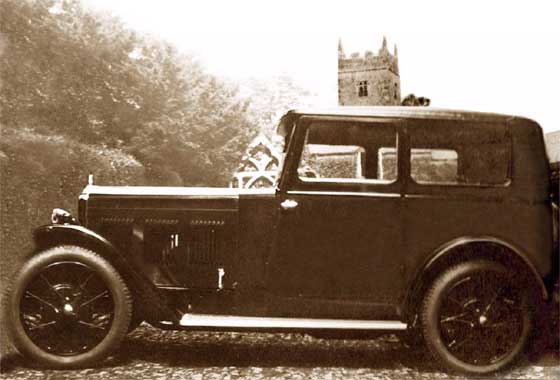
A
1931 Wolseley Hornet saloon style convertible
The Wolseley Hornet was a
lightweight saloon car produced by the Wolseley Motor Company from 1930 to
1935.
It had a six cylinder (1271cc) engine with a single overhead cam, and
hydraulic brakes. The engine was modified in 1932 to make it shorter and it was
moved forwards on the chassis. In 1935 the engine size was increased to
1378 cc.
Wolseley supplied the firsts cars as either an enclosed saloon with steel
or fabric body or open two seater. From 1931 it was available without the
saloon body, and was used as the basis for a number of sporting specials for
which the customer could choose a styling from a range of coachbuilders. In
1932 Wolsley added two and four seat coupés to the range. For its final year of
production the range was rationalised to a standard saloon and coupé.
A three speed gearbox was fitted to the earliest cars but this was upgraded
to a four speed in 1932 and fitted with synchromesh from 1933. A freewheel
mechanism could be ordered in 1934.The engine was also used in a range of MG
cars.
If you
run a Theosophy Group, please feel free
to use
any of the material on this site
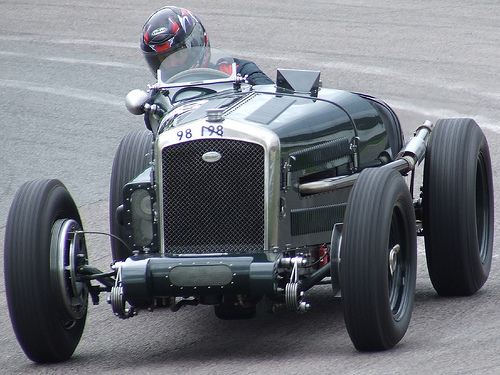
1930s
Wolseley Hornet racing car circuiting the track in modern times
The Most Basic Theosophy
Website in the Universe
A quick overview of Theosophy
and the Theosophical Society
If you run a Theosophy Group you
can use this as an introductory handout.
Theosophy Cardiff’s Instant Guide
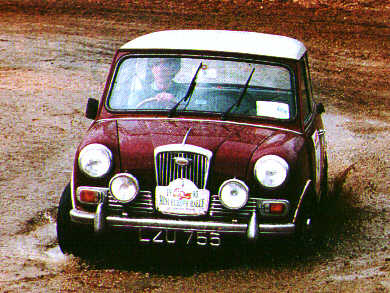
Wolseley
Hornet on a rally circa 1963
Theosophical Movement in Wales
as it separates into independent
groups that run do their own show
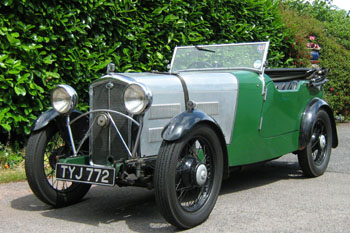
Early
1930s Wolseley Hornet customized roadster design
Basic
front mudguards not extending to runner boards.
Only
the driver gets a windscreen wiper
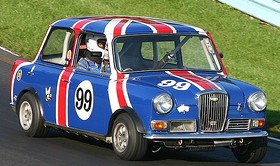
Patriotic
Wolseley Hornet on the race track in 1965
One liners and quick explanations
H P
Blavatsky is usually the only
Theosophist
that most people have ever
heard
of. Let’s put that right
The Voice of the Silence Website
An
Independent Theosophical Republic
Links
to Free Online Theosophy
Study
Resources; Courses, Writings,

Early
1930s Customized Wolseley Hornet with integrated front mudguards
and
runner boards. Two windscreen wipers on this one.
The main criteria for the inclusion of
links on this site is that they have some
relationship (however tenuous) to Theosophy
and are lightweight, amusing or entertaining.
Topics include Quantum Theory and Socks,
Dick Dastardly and Legendary Blues Singers.

Four
views of the car in the picture above
A selection of articles on Reincarnation
Provided in response to the large
number of enquiries we receive at
Cardiff Theosophical Society on this subject
The Voice of the Silence Website
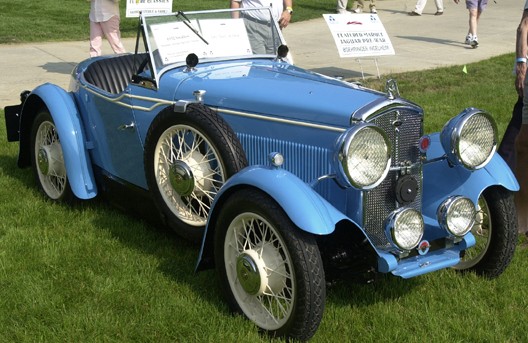
Swallow Wolseley Hornet 1932

A
leaflet promoting the new hydrolastic suspension introduced in the mid sixties.
This
became standard on many BMC models including the Mini, 1100, 1300
&
1800 models. Suspension was maintained by means of a sealed fluid system
which
was claimed to be very comfortable but appeared to make some people
seasick
in the larger cars. As the cars got older, the suspension might burst
causing
the car’s suspension to collapse on one side meaning a difficult
drive
home or to a garage.
This is for
everyone, you don’t have to live
in Wales to
make good use of this Website

1930s
Corsica Wolseley Hornet
No
Aardvarks were harmed in the
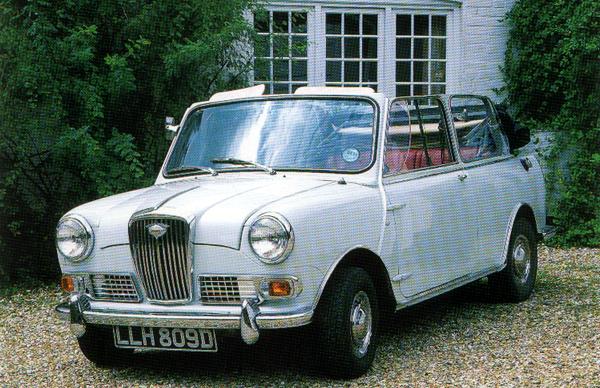
A 1966 Wolseley Hornet
convertible by Crayford Engineering
Convertible 1960s Hornets
were not standard and were very rare as
were all convertibles in the Mini
range.
Crayford did a run of 57
Hornet convertibles for Heinz to be given
as prizes in a competition
Within the British Isles, The Adyar Theosophical Society
has Groups in;
Bangor*Basingstoke*Billericay*Birmingham*Blackburn*Bolton*Bournemouth
Bradford*Bristol*Camberley*Cardiff*Chester*Conwy*Coventry*Dundee*Edinburgh
Folkstone*Glasgow*Grimsby*Inverness*Isle of
Man*Lancaster*Leeds*Leicester
Letchworth*London*Manchester*Merseyside*Middlesborough*Newcastle upon
Tyne
North Devon*Northampton*Northern Ireland*Norwich*Nottingham
Perth*Republic of Ireland*Sidmouth*Southport*Sussex*Swansea*Torbay
Tunbridge Wells*Wallasey*Warrington*Wembley*Winchester*Worthing
The Spiritual Home of Urban Theosophy
The Earth Base for Evolutionary Theosophy
A
B
C
D
EFG
H
IJ
KL
M
N
OP
QR
S
T
UV
WXYZ
Complete Theosophical Glossary in Plain Text Format
1.22MB
__________________
& of course
you don’t need to live in Wales
to take advantage of this guide
_____________________
Camberley, Surrey, England GU15 - 2LF
Tekels Park to be Sold to a Developer
Concerns are raised about the fate of the wildlife as
The Spiritual Retreat, Tekels Park in Camberley,
Surrey, England is to be sold to a developer
Tekels Park is a 50 acre woodland park, purchased
for the Adyar
Theosophical Society in England in 1929.
In addition to concern about the park, many are
worried about
the future of the Tekels Park Deer
as they are not a protected species.
Many feel that the sale of a
sanctuary
for wildlife to a developer can only
mean
disaster for the park’s animals
In addition to concern about the
park,
many are worried about the future
of the Tekels Park Deer as they
Confusion as the Theoversity moves out of
Tekels Park to Southampton, Glastonbury &
Chorley in Lancashire while the leadership claim
that the Theosophical Society will carry on
using
Tekels Park despite its sale to a developer
Anyone planning a “Spiritual” stay at
the
Tekels Park Guest House should be
aware of the sale.
Theosophy talks of a compassionate
attitude
to animals and the sale of the Tekels
Park
sanctuary for wildlife to a developer
has
Future
of Tekels Park Badgers in Doubt
Party On!
Tekels Park Theosophy NOT
St Francis Church at Tekels Park
Tekels Park & the Loch Ness Monster
A Satirical view of
the sale of Tekels Park
in Camberley,
Surrey to a developer
The Toff’s Guide to the Sale of Tekels Park
What the men in top
hats have to
say about the sale
of Tekels Park
____________________
The Theosophy Cardiff
Guide to
Pendle Hill, Lancashire, England.
Quick
Explanations with Links to More Detailed Info
What is Theosophy ? Theosophy Defined (More Detail)
Three Fundamental Propositions Key Concepts of Theosophy
Cosmogenesis
Anthropogenesis
Root Races
Karma
Ascended Masters After Death States Reincarnation
The Seven Principles of Man Helena Petrovna Blavatsky
Colonel Henry Steel Olcott William Quan Judge
The Start of the Theosophical Society
History of the Theosophical Society
Theosophical Society Presidents
History of the Theosophical Society in Wales
The Three Objectives of the Theosophical Society
Explanation of the Theosophical Society Emblem
Glossaries of Theosophical Terms

Another
good example of a 1930s Wolseley Hornet
An Outstanding Introduction to Theosophy
By a student of Katherine Tingley
Elementary Theosophy Who is the Man? Body and Soul
Body, Soul and Spirit Reincarnation Karma

1960s
Riley Elf
Outwardly
the same as the Wolseley Hornet except for the badge & grill
A
bit more expensive
Reincarnation
This guide has been included in response
to the number of enquiries we receive on
this
subject at Cardiff Theosophical Society
From A Textbook
of Theosophy By C W Leadbeater
How We Remember our Past Lives
Life after Death & Reincarnation
The Slaughter of the Battle of the Somme
1916 leads to
a great demand by the public for
lectures on Reincarnation
Classic Introductory Theosophy Text
A Text Book of Theosophy By C W
Leadbeater
What Theosophy Is From the Absolute to Man
The Formation of a Solar System The Evolution of Life
The Constitution of Man After Death
Reincarnation
The Purpose of Life The Planetary Chains
The Result of Theosophical Study
The Occult World
By
Alfred Percy Sinnett
The
Occult World is an treatise on the
Occult
and Occult Phenomena, presented
in readable style, by an early giant of
the
Theosophical Movement.
Preface to the American Edition Introduction
Occultism and its Adepts The Theosophical Society
First Occult Experiences Teachings of Occult Philosophy
Later Occult Phenomena Appendix
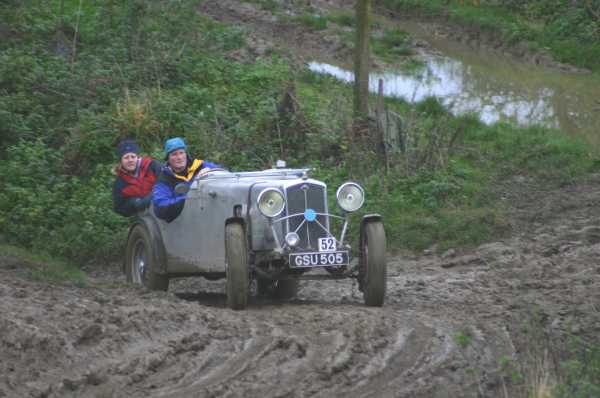
1930’s
Wolseley Hornet on a hill climb trial
An Outline of Theosophy
Charles Webster Leadbeater
Theosophy - What it is How is it Known? The Method of Observation
General Principles The Three Great Truths The Deity
Advantage Gained from this
Knowledge The Divine Scheme
The Constitution of Man The True Man Reincarnation
The Wider Outlook Death Man’s Past and Future
Cause and Effect What Theosophy does for us

Side
and rear view of a 1960s Wolseley Hornet
Try these if you are looking
for a local
Theosophy Group or Centre
UK Listing of Theosophical Groups
Please tell us about your UK Theosophy Group
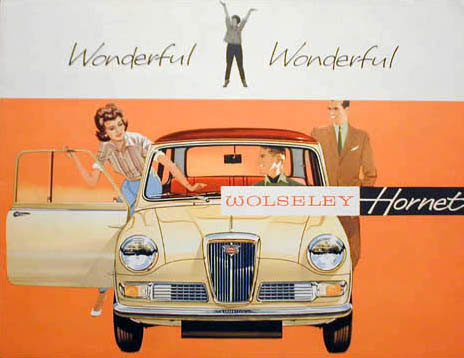
1960s
Wolseley Hornet promotional leaflet
___________________
into categories and
presented according to relevance of website.
Web Directory
- Add Link - Submit Article - Online Store - Forum
______________________

General pages about Wales, Welsh History
and The History of Theosophy in Wales
Wales is a
Principality within the United Kingdom and has an eastern
border with
England. The land area is just over 8,000 square miles.
Snowdon in North
Wales is the highest mountain at 3,650 feet.
The coastline is
almost 750 miles long. The population of Wales
as at the 2001 census is 2,946,200.
________________
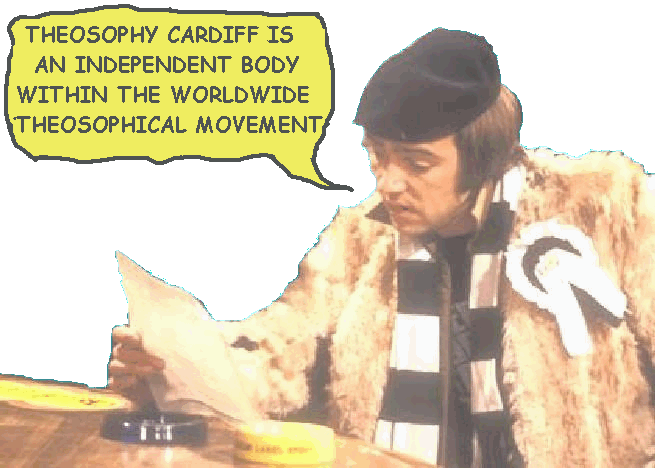
Bangor Conwy & Swansea Lodges are
members
of the Welsh Regional Association
(Formed 1993).
Theosophy Cardiff separated from the
Welsh Regional
Association in March 2008 and became an independent
body within the Theosophical Movement in March 2010
High
Drama & Worldwide Confusion
as
Theosophy Cardiff Separates from the
Welsh
Regional Association (formed 1993)
Theosophy Cardiff cancels its Affiliation
to the Adyar Based Theosophical Society
Cardiff, Wales, UK, CF24 – 1DL
